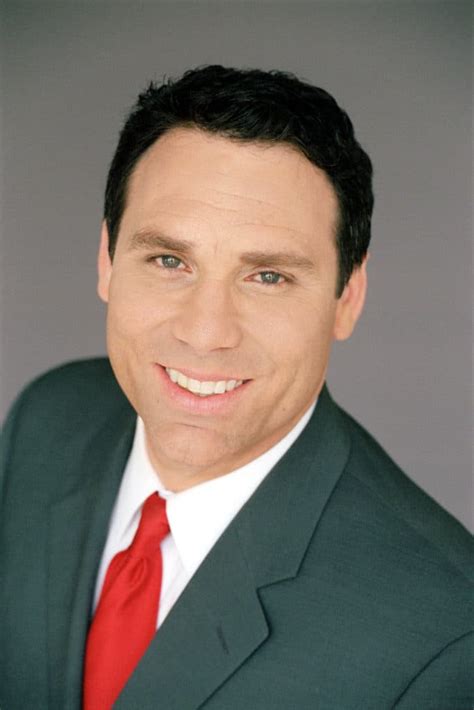Ein Zitat von Millicent Fenwick
Wirtschaftswissenschaften sind keine Wissenschaft in dem Sinne, dass eine Politik wiederholt unter ähnlichen Bedingungen angewendet werden kann und immer wieder zu ähnlichen Ergebnissen führt.
Themen zitieren
Verwandte Zitate
In der Mitte des nächsten Jahrhunderts, wenn das literarische Establishment die multikulturelle Zusammensetzung dieses Landes widerspiegeln wird und nicht von Assimilationisten mit ähnlichem Geschmack, ähnlichem Hintergrund und ähnlichen Ansprüchen dominiert wird, wird Langston Hughes für das 20. Jahrhundert das sein, was Walt Whitman ist war bis zum neunzehnten.
In der Welt der traditionellen Wirtschaftswissenschaften sollte es keine Rolle spielen, ob Sie ein Opt-In- oder Opt-Out-System verwenden. Solange die Kosten für die Registrierung als Spender oder Nichtspender niedrig sind, sollten die Ergebnisse ähnlich sein. Viele Erkenntnisse der Verhaltensökonomie zeigen jedoch, dass kleine Unterschiede in solchen Regeln einen großen Unterschied machen können.
Ähnliche (natürlich keineswegs identische) Reizungen unter ähnlichen Bedingungen rufen ähnliche Reflexe hervor; Je stärker die Irritation, desto eher überwindet sie persönliche Eigenheiten. Auf ein Kitzeln reagieren Menschen unterschiedlich, auf ein glühendes Eisen jedoch gleich. Wie ein Dampfhammer eine Kugel und einen Würfel gleichermaßen in Blech verwandelt, so werden unter dem Schlag allzu großer und unaufhaltsamer Ereignisse Widerstände zerschlagen und die Grenzen der „Individualität“ verloren.
Ich habe keinen Zweifel daran, dass man die Toten der heutigen Kriege eines Tages mit einem ähnlichen Gefühl der Trauer über unnötige Verluste und Torheit betrachten wird wie die Millionen Männer, die auf den Friedhöfen Frankreichs und Belgiens liegen – und Dutzende Millionen Amerikaner werden es empfinden ähnlicher Abscheu gegenüber den Politikern und Generälen, die so verschwenderisch mit dem Leben anderer umgingen.
Ich habe wiederholt gesagt, dass ich beabsichtige, Guantanamo zu schließen, und ich werde dies auch in die Tat umsetzen. Ich habe wiederholt gesagt, dass Amerika nicht foltert. Und ich werde dafür sorgen, dass wir nicht foltern. Dies ist ein wesentlicher Bestandteil der Bemühungen, Amerikas moralische Stellung in der Welt wiederzugewinnen.
Tatsächlich habe ich den größten Teil meines Lebens im Ausland verbracht, bin aber immer wieder zurückgekehrt, um beim Film, bei Sonderfernsehproduktionen und am New Yorker Theater zu arbeiten. Es gab auch Ehrungen und ähnliche Anlässe, die mich nach Hollywood zurückgerufen haben. Ich bin so oft zurückgekehrt, dass ich fast das Gefühl habe, nie gegangen zu sein.
Die Wissenschaft bietet die kühnste Metaphysik der Zeit. Es ist ein durch und durch menschliches Konstrukt, das von dem Glauben getragen wird, dass die Welt irgendwie klarer wird und wir die wahre Fremdartigkeit des Universums begreifen, wenn wir träumen, danach streben, etwas zu entdecken, zu erklären und erneut zu träumen und dabei immer wieder in neues Terrain vorstoßen. Und die Fremdartigkeit wird sich als zusammenhängend erweisen und einen Sinn ergeben.
In meinen Gemälden spielt die Frage, ob Figuren ähnlich sind oder nicht, keine Rolle, die kleinste Veränderung der Figur oder Farbe kann ein neues Gemälde schaffen und es spielt keine Rolle, ob ein Künstler ein Thema immer wieder aufgreift. Mit genügend Zeit zwischen den Gemälden kann ein Künstler immer etwas Neues einbringen.
Tatsächlich entscheiden sich Menschen mit ähnlichen Informationen, ähnlichen Überzeugungen und ähnlichen scheinbaren Entscheidungen in den meisten Fällen für ähnliche Handlungen. Wenn Sie also wissen möchten, warum jemand tut, was er tut, beginnen Sie mit dem, was er weiß, woran er glaubt und woher er kommt. Das Ablehnen von Handlungen, die wir nicht bewundern, nur weil es uns nicht wichtig genug ist, um Empathie zu zeigen, wird uns selten dabei helfen, die Veränderung herbeizuführen, die wir anstreben. Es hilft uns nicht, es zu verstehen, und es schafft eine Kluft, die uns auseinandertreibt.




































